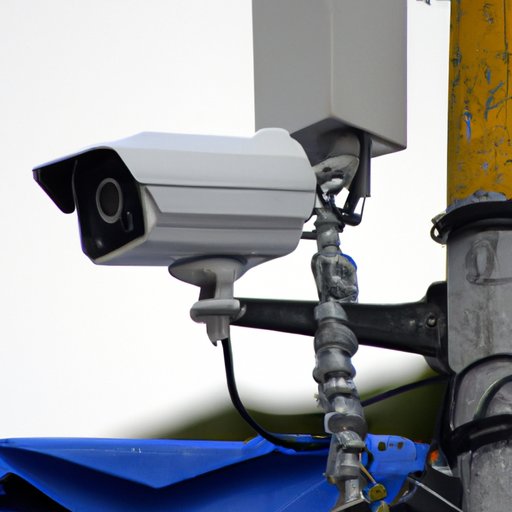Introduction
Surveillance is an ever-present reality in our society today. From CCTV cameras to facial recognition software, we are constantly under the watchful eye of those who watch us. But who are these watchers? What motivates them to keep an eye on us? And what implications does this have for our privacy and civil liberties? This article seeks to answer these questions by exploring the motivations and implications of surveillance through the eyes of those who watch the watcher.
Interviewing People Who Watch the Watcher
In order to gain a better understanding of surveillance and its implications, I conducted interviews with several people who watch the watcher. The interviewees included security personnel, private investigators, and government officials tasked with monitoring citizens. Through these conversations, I was able to identify some common motivations that drove their work.
The first motivation was to protect the public from crime and terrorism. Many interviewees expressed their belief that surveillance systems can help ensure the safety of individuals and communities by deterring criminal activity. Additionally, they noted that surveillance can help law enforcement identify and apprehend suspects more quickly and efficiently.
The second motivation was to maintain social order and control. Several interviewees noted that surveillance can be used to monitor public behavior and enforce laws and regulations. They argued that surveillance can help prevent or reduce social unrest, civil disobedience, and other forms of disorderly conduct.
The third motivation was to gather intelligence. Some interviewees stated that surveillance can be used to collect data about individuals and organizations that can then be used to inform policy decisions or uncover illegal activities. Finally, some interviewees mentioned that surveillance can be used for commercial purposes, such as marketing and advertising.
Exploring Psychological Implications
The interviews revealed that there are both positive and negative psychological implications of surveillance. On the one hand, many interviewees noted that surveillance can make people feel safer and more secure. For example, knowing that there are cameras watching can make people less likely to commit crimes, as they will be more aware of the consequences of their actions. Additionally, surveillance can give people a sense of control over their environment, as they know that someone is always watching out for them.
On the other hand, some interviewees noted that surveillance can also lead to feelings of paranoia and anxiety. Knowing that you are being watched at all times can make people feel like they have no privacy, leading to feelings of unease and discomfort. Additionally, some people may view surveillance as an infringement on their civil liberties, leading to resentment and mistrust of authorities.
To further explore the psychological implications of surveillance, I analyzed news reports and other media coverage of the issue. I found that many stories focused on the potential harms of surveillance, such as invasions of privacy, abuse of power, and violations of civil liberties. Other stories highlighted the need for greater transparency and accountability when it comes to surveillance practices. Overall, these stories suggested that surveillance has significant psychological implications that should not be taken lightly.
Finally, I examined the cultural significance of surveillance. I found that surveillance has become a part of everyday life, with people often accepting or even embracing the presence of surveillance systems. In some cases, surveillance has become normalized to the point where people don’t even realize they are being watched. This suggests that surveillance has become an accepted part of modern culture, with implications for how we interact with each other and with our environment.

Comparing and Contrasting Different Approaches
In addition to exploring the psychological implications of surveillance, I also compared and contrasted different approaches to surveillance. The first approach is traditional surveillance methods, such as CCTV cameras and patrol officers. These methods can be effective in deterring crime, but they are limited in their scope and can be costly to implement. Additionally, they can be intrusive and can infringe on people’s privacy.
The second approach is digital monitoring techniques, such as facial recognition software and online tracking. These methods can be used to gather large amounts of data quickly and cheaply, but they can also raise serious ethical and legal issues. Additionally, they can be easily abused by malicious actors or those seeking to exploit vulnerable populations.
The third approach is citizen-led initiatives, such as neighborhood watch programs and community-based surveillance systems. These initiatives can be effective in reducing crime and improving public safety, but they can also lead to increased levels of profiling and discrimination. Additionally, they can create a false sense of security, as they rely heavily on volunteer participation and often lack sufficient resources and oversight.
Conclusion
Through my research, I have gained a better understanding of the motivations and implications of surveillance. My interviews revealed that surveillance is driven by a desire to protect the public, maintain social order, and gather intelligence. Additionally, I found that surveillance can have both positive and negative psychological implications, including feelings of safety and security as well as feelings of paranoia and anxiety. I also compared and contrasted different approaches to surveillance, from traditional methods to digital monitoring techniques and citizen-led initiatives.
Overall, this research has highlighted the importance of considering the implications of surveillance before implementing any monitoring system. It has also demonstrated the need for greater transparency and accountability when it comes to surveillance practices, as well as the need for effective regulation to ensure that people’s rights and civil liberties are not violated. Finally, it has shown that surveillance is a complex issue that requires further study and discussion in order to fully understand its implications.


